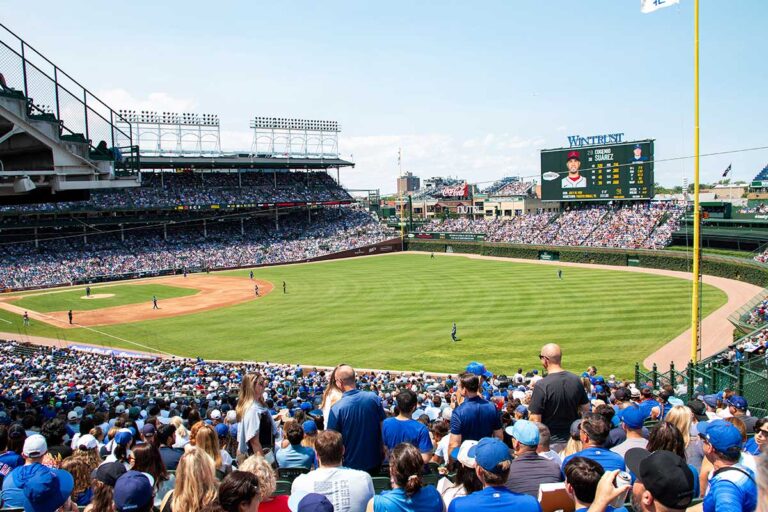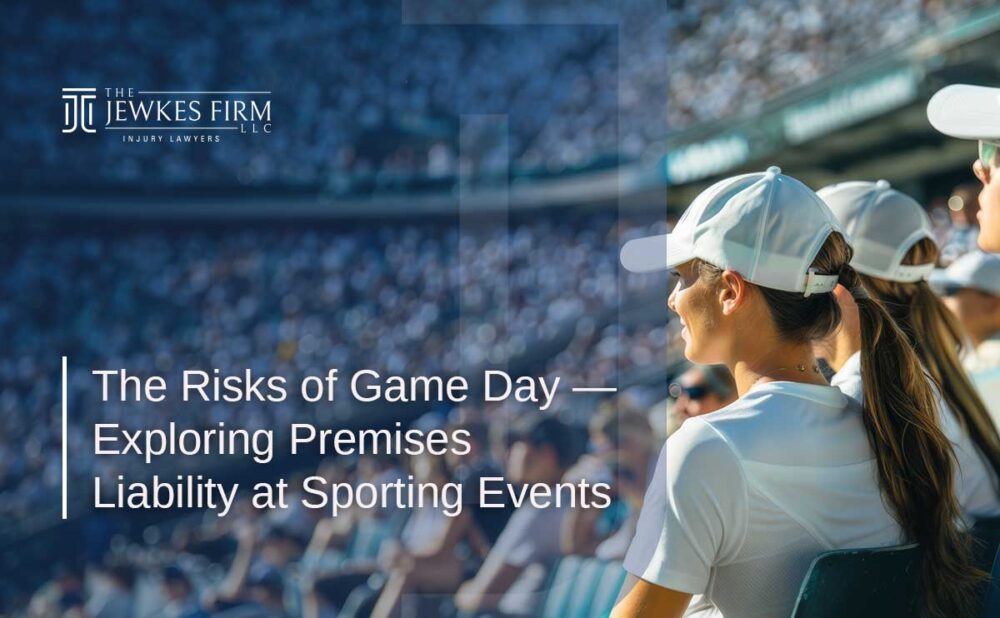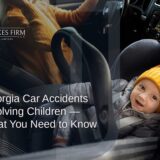The Risks of Game Day — Exploring Premises Liability for Injuries at Sporting Events in Georgia
Attending sporting events can be an exhilarating experience—cheering on your favorite team, enjoying the camaraderie of fellow fans, and soaking up the charged atmosphere in stadiums and arenas across Georgia. However, sometimes a day at the ballpark or basketball court turns hazardous due to unsafe conditions or negligent conduct by property owners or event organizers. If you or a loved one has been injured at a sporting event in Georgia, understanding your rights under premises liability law is crucial.
Going to a ballgame or match should be all cheers, no injuries. But crowded concourses, spilled drinks, flying objects, and rowdy crowds can turn a fun day into a serious incident. If you were hurt at a Georgia sporting event — whether at a professional stadium, a college arena, a local high-school field, or a private training facility — you may have a premises liability claim. This article explains how Georgia law views these cases, what defenses venues raise, and what to do next.
Injured at a Sporting Event? Contact Us For A Free Consultation
Injured at a Sporting Event?
What is Premises Liability?
Premises liability is a legal concept that holds property owners and occupiers responsible for maintaining a safe environment for visitors. When you attend a sporting event, the venue owner or operator owes you a duty of care to ensure the premises are free from dangerous conditions that could cause injury.
The Core Duty — “Ordinary Care” to Keep Premises and Approaches Safe
In Georgia, owners and occupiers who invite the public onto their property (think: stadiums, arenas, privately run fields) must exercise ordinary care to keep the premises and their approaches safe. “Approaches” include places like parking lots, sidewalks, stairs, ramps, and entryways leading into the venue.
Common event-day hazards that can breach this duty include:
- Slippery concourses (spills, tracked-in rain) without timely cleanup or warnings
- Broken steps, loose handrails, dim lighting
- Overcrowding, poorly controlled lines, unsafe crowd flow
- Inadequate security or failure to separate rival fan sections
- Falling objects (signage, equipment)
- Poorly maintained seating or bleachers
Who Is Responsible for Injuries at Sporting Events?
In Georgia, liability typically falls on the property owner, lessee, or event organizer if their negligence led to your injury. This includes city-owned stadiums, private sports arenas, concession operators, and any contractors responsible for venue maintenance.
Sometimes, multiple parties can complicate liability when involved. For example, if a concession stand’s faulty equipment caused a fire, liability might extend to the concession operator, the venue owner, and possibly a third-party maintenance firm.
Need a Free Consultation? Need a Skilled Attorney?
Free Consultation
Call (770) 771-5130
If you’ve been injured, you need to hire the best legal care to assist you with your claim. Get a FREE consultation today!

Common Injuries at Sporting Events and Examples of Liability
Injuries at sporting events can range from minor scrapes to life-altering harm. Examples include:
- Slip and Falls. Wet or debris-covered floors, especially in concourses and restrooms.
- Falls from Seating Areas. Broken or missing railings, loose seats, or overcrowded aisles.
- Being Struck by Objects. Foul balls, flying equipment, or unsecured signage.
- Assault by Other Attendees. Inadequate security leading to fights or attacks.
- Food Poisoning or Burns. Negligence by concession vendors.
Projectiles and “Assumption of Risk” at Games
Spectator-injury cases often involve balls, bats, or pucks entering the stands. Georgia courts acknowledge the idea of “assumption of risk” in certain situations involving spectators. They have supported defense victories when the specific risks were clear and obvious to the fans. A notable example is Dalton v. Jones, involving the Atlanta Braves, where summary judgment for defendants was upheld based on assumption of risk.
However, Georgia has not adopted a blanket “Baseball Rule” that automatically shields teams so long as there’s netting behind home plate — a rule some other states use. Reporting and commentary around recent Georgia cases reflect that courts here do not apply an automatic baseball-rule immunity, and claims can proceed based on the venue’s broader duty of care and the specific facts.
Takeaway: Georgia determines whether assumption of risk bars a projectile injury based on the specific facts of each case: Where were you seated? What warnings and protections were in place? Was the hazard beyond what an ordinary fan would expect?
Negligent Security at Sports Venues
Venues must take reasonable steps to protect invitees from foreseeable criminal acts (fights, assaults). Georgia’s Supreme Court has emphasized a “totality of the circumstances” approach to foreseeability — not a rigid “prior identical crimes only” test. Evidence can include crime levels, prior incidents, security staffing, and policies.
Illustration: A Georgia appellate summary involving a fight at the Falcons’ stadium shows how assumption of risk may affect negligence claims tied to brawls, but courts analyze intentional torts (like assault) differently. Again, facts matter: crowd control, alcohol management, and response time are key issues.
Alcohol Service and Dram Shop Issues Inside Stadiums
If intoxication plays a role (overservice at the park leading to a fight or a post-game DUI crash), Georgia’s Dram Shop/Social Host statute may apply. Liability can arise if alcohol is knowingly served to a minor or to someone noticeably intoxicated knowing they will soon be driving. Otherwise, furnishing alcohol to an adult typically does not create liability.
Government-Owned Venues — Special Notice and Immunity Rules
Public entities own or operate many Georgia sports facilities. Claims against them trigger sovereign (governmental) immunity and strict pre-suit notice rules:
- Cities (municipal corporations). Written ante litem notice within 6 months, stating time/place, extent of injury, alleged negligence, and a specific demand amount.
- Counties. “Presentation” of claims within 12 months (a lawsuit served within 12 months can sometimes suffice).
- State-owned facilities/agencies (Georgia Tort Claims Act). Written notice within 12 months with detailed content and service requirements. The venue restricts access, and statutes provide exceptions and limitations.
These deadlines are in addition to Georgia’s general two-year statute of limitations for personal injury. Missing an ante-litem notice can end a case even if you’re within two years.

Comparative Fault and Apportionment at Sporting Events
Georgia follows modified comparative negligence: if you’re 50% or more at fault, you recover nothing; if less than 50%, the court reduces your damages by your percentage of fault. Georgia’s apportionment statute also allows juries to apportion fault among multiple at-fault parties (including some nonparties, if properly noticed).
At sporting events, defendants may argue you weren’t paying attention, ignored warnings, or chose a riskier area. We counter by documenting poor maintenance, inadequate warnings, overcrowding, or failures in security planning that increased risk beyond what a reasonable fan would expect.
Georgia’s Premises Liability Laws and Your Rights
Georgia follows a “comparative negligence” legal standard. This means the courts could reduce your compensation if you are partly at fault for your injury. For example, if someone warned you about a wet floor but you failed to exercise caution, the court might reduce your damages proportionally.
To establish a premises liability claim, you generally must prove:
- Duty. The property owner owed you a duty of care.
- Breach. The owner failed to meet that duty by neglecting to fix or warn about a hazard.
- Causation. This breach directly caused your injury.
- Damages. You suffered genuine harm, such as medical expenses, lost income, or emotional distress.
Ticket Waivers and Disclaimers
Small-print waivers on tickets and posted signs are not a silver bullet in Georgia. Exculpatory clauses can influence a case, but they are strictly construed, cannot waive gross negligence or willful/wanton misconduct, and may be invalid if ambiguous or against public policy. The enforceability turns on the precise language and circumstances.
Evidence That Moves the Needle
If you’re hurt at a game, act quickly to preserve proof:
- Photos/video of the hazard, lighting, crowding, spills, or lack of warnings
- Incident reports and employee names/badge numbers
- Medical documentation from the same day
- Witness names and contact info (seat or section numbers help)
- Your ticket/seat info and any event communications (texts, emails, app alerts)
- Security/police reports, if any
- Timing: note when you alerted staff and how long the condition existed
Filing Deadlines (Quick Reference)
- General personal injury. 2 years from the date of injury
- City/municipal venue. Ante litem notice within 6 months
- County venue. Present claim within 12 months
- State-owned venue (GTCA). Notice within 12 months with strict service/content rules
Missing a notice deadline can bar your claim even before the two-year statute runs.
Who May Be Liable?
Depending on the facts, responsible parties can include:
- The stadium/arena operator or owner
- Third-party contractors (janitorial, security, concessions)
- Event promoters or teams (for certain operational decisions)
- Alcohol vendors (only in narrow Dram Shop scenarios) turn
Georgia’s apportionment framework lets a jury divide fault among multiple players when supported by evidence.
Protect Yourself at Sporting Events
While others often cause injuries through negligence, you can take some precautions.
- Stay alert to your surroundings.
- Follow posted warnings and staff instructions.
- Report unsafe conditions immediately to venue personnel.
- Seek medical attention promptly if injured.
- Document everything: take photos, get witness contact info, and keep all receipts related to your injury.

GEORGIA PERSONAL INJURY LAWYER NEAR ME
Let’s Talk About Your Case
Injuries at sporting events can be physically painful, emotionally stressful, and financially burdensome. At The Jewkes Firm, Attorney Jordan Jewkes and our experienced team hold negligent parties accountable and secure fair compensation for victims. We understand the challenges involved in premises liability claims, from gathering evidence such as surveillance footage and maintenance records to navigating insurance company tactics.
If you or a loved one has been injured at a Georgia sporting event, don’t delay. Call The Jewkes Firm at (770) 771-5130 for a free consultation. We will carefully review your case, explain your options, and fight to protect your rights every step of the way.
Your safety and recovery are our top priorities—let us help you pursue the justice you deserve.
Frequently Asked Questions
What is premises liability at a sporting event in Georgia?
Premises liability holds stadium owners and operators responsible when unsafe property conditions cause injuries. In Georgia, they must use ordinary care to keep the premises and approaches safe for visitors.
Who can be held responsible for injuries at a sporting event in Georgia?
Property owners, venue operators, concession vendors, event organizers, or contractors involved in maintaining the facility can be held liable depending on the circumstances.
What types of injuries are common at sporting events that involve premises liability?
Common injuries include slip and falls, falling from seating or stairs, being hit by objects, assaults due to inadequate security, and food-related injuries from concession stands.
How does Georgia’s comparative negligence law affect my premises liability claim?
Georgia's law means that if you are partially at fault for your injury, the court may reduce your compensation based on your percentage of fault but you can still recover damages.
How soon should I contact a lawyer after an injury at a sporting event?
It’s important to contact a personal injury attorney as soon as possible to preserve evidence, assess your claim, and meet any legal deadlines.
What can The Jewkes Firm do to help injured sporting event attendees?
The Jewkes Firm investigates quickly to preserve video evidence, collect maintenance records, and meet Georgia's strict notice deadlines — ensuring we protect your right to compensation.
Can I sue if I was hit by a foul ball or flying object?
Possibly. Georgia does not automatically follow the “Baseball Rule,” so liability depends on where you were seated, what warnings were provided, and whether reasonable safety measures (like netting) were in place.
What if someone injured me in a fight or due to poor security at a stadium?
You may have a negligent security claim. Georgia courts look at the totality of the circumstances — including previous incidents and the venue’s safety measures — to determine foreseeability and negligence.
What is the deadline for filing a premises liability claim in Georgia?
Generally, you have a period of two years from the date of the incident. However, if a city, county, or state entity owns the venue, you must provide ante litem notice within 6 or 12 months, depending on who owns it.
Do ticket waivers or disclaimers prevent me from suing?
Not necessarily. Georgia construes waivers narrowly and they don’t excuse gross negligence or willful/wanton conduct.





